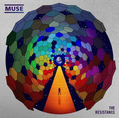
The idea of creating this website and YouTube channel spawned during one of the several useful conversations that I have had with my second-year engineering students in my 800+ student class on engineering data analytics. For those who are not aware of these two technologies, here's a brief introduction:


The response to this website and the YouTube channel has been very encouraging. In just under 3 months since the launch, we have registered about 1500 video views from 70+ countries. These numbers are only expected to grow with time and more cutting-edge content. The average view duration is very close to the average length of our shorter videos.
As an educator, I strongly believe that as humanity becomes increasingly technological, we must provide our current and future generations of engineers and scientists the support structure and knowledge required to create systems that allow for effective and data-driven decision-making. Matlabarduino.org is a step in this direction. So the next time you have an idea, don't wait; simply 1) Plug an Arduino board to your computer 2) Start Matlab, and 3) Join the fun!


 RSS Feed
RSS Feed